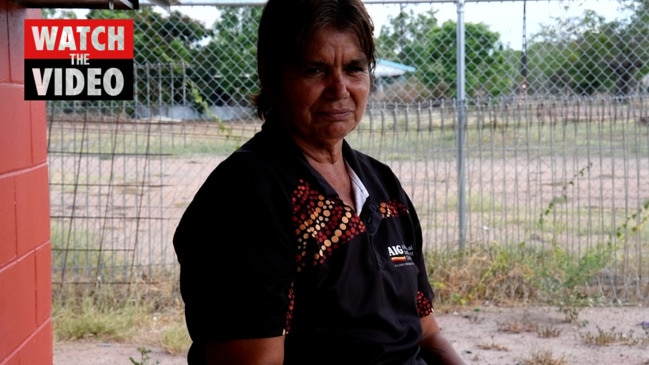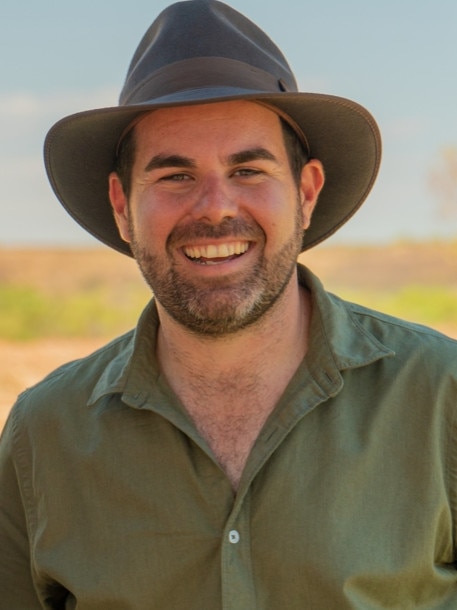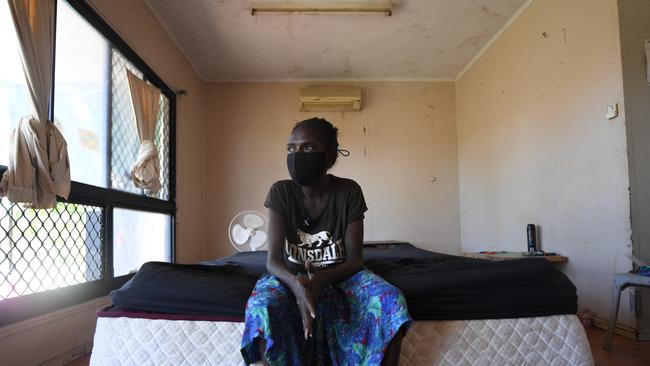Remote Housing Minister Chansey Paech on the remote housing crisis
Sustainable change is what Remote Housing Minister Chansey Paech is advocating for when it comes to dealing with the crisis in remote communities.

Alice Springs
Don't miss out on the headlines from Alice Springs. Followed categories will be added to My News.
STRIKING the right balance between rolling out new remote houses at pace and finding the right people to build and maintain them is at the heart of Chansey Paech’s job as Minister for Remote Housing and Town Camps.
Having held the daunting portfolio for just over 12 months, one of the key reforms Mr Paech has fought for is transitioning housing work in the bush – like building, tenancy, and maintenance – to Aboriginal business enterprises.

Mr Paech said he makes no apologies for blocking tenders from being awarded to non-Indigenous contractors, even when it slows down progress.
“The only way we are going to see a change in remote housing in the future is for there to be capacity building and we need to transition and give priority to Aboriginal businesses and organisations to enable them to have the opportunity and to take that step forward to do repairs and maintenance,” he said.
“Bringing out those pipelines of work, where it could be a five-year contract to deliver 80 new houses, gives those Aboriginal organisations the ability to now bring on apprentices so that we can have people learning trades so that they can stay in those organisations to do that work kind of work over the long term.”
SLOW PROGRESS
The Gunner government, since coming to power in 2016, has faced criticism – both in the Territory and from the commonwealth – over its progress delivering housing under its signature scheme: Our Community. Our Future. Our Homes.
Through the program, the Territory government committed to spend $1.1bn over 10 years to address the disastrous rate of overcrowding and shocking living conditions that have befallen remote Aboriginal communities for decades.
Five years in, only a quarter of that money has been spent, and Mr Paech would not guarantee his government would spend it all by the end of the 2026-27 financial year. However, he said it was a misconception the money would be spent evenly over the 10 years.
While overcrowding figures have improved slightly in recent years, many remote Territorians continue to live in third-world conditions, with about 55 per cent of remote houses overcrowded.
Meanwhile, hundreds of homes across homelands and remote communities have fallen into a state of disrepair, and some tenants have told the NT News their requests for urgent repairs and maintenance are simply being ignored.
“Progress sometimes is slow, but it does happen,” Mr Paech said.
“I am here to make it better, and it is getting better. Would like it to be faster? You bet. But I have to work within the agreements and the procurement and processes that are in place in the government.”
But Mr Paech said he wouldn’t shy away from the fact that previous governments – of all political persuasions – largely ignored this crisis in the bush and instead adopted an ‘out of sight, out of mind’ mentality. He said he would not be a “passive” minister when it comes to navigating the complex space of remote housing.
“Personally, being an Aboriginal person and having family and friends throughout the Territory living in remote communities and public housing, I have stayed in a number of homes where I’ve seen first-hand a lot of the complexities and a lot of the issues that people do experience,” he said.
PANDEMIC STRIKES ON HOUSING
When the Covid-19 pandemic struck in March 2020, it quickly became clear that the deadly virus would pose a significant risk to those living and in chronically overcrowded conditions. It did not take long for advocacy groups and community leaders to raise the alarm and call for more immediate action to address the Territory’s housing crisis.
But the pandemic only hindered the progress of the housing rollout because of border closures, lockdowns, and biosecurity zones. Later came a loss of contractors who refused to get vaccinated and lost their jobs due to the mandate and workers who themselves contracted Covid-19 and could not do their jobs.
Mr Paech said it highlighted the need to continue with the NT government’s implementation of a “regionalised model” for remote housing, which would see housing staff based remote communities across the Territory to mitigate the challenges that the pandemic has presented.
FEDERAL GOVERNMENT’S RESPONSIBILITY
With a federal election looming, Mr Paech said it was important to highlight that the federal government has a responsibility when it comes to delivering remote housing, which the federal Minister for Indigenous Australians Ken Wyatt has disputed.
Mr Paech has been lobbying the federal government for months for an additional investment for housing on homelands, and in October wrote a letter to Mr Wyatt describing his visit to one outstation where houses were “derelict” and residents were “living in tents”.
It comes after a damning review of the Territory government’s Indigenous homelands policy was made public earlier this year, highlighting a lack of transparency and “generally poor condition” of housing and infrastructure.
“The fact is the commonwealth can’t walk away from housing because they’re signatories on leases with communities with the Northern Territory government,” Mr Paech said.
Among other programs, the commonwealth in 2018 committed to $550m in funding for remote housing over five years as part of the National Partnership for Remote Housing NT.
OBSTACLES AHEAD
Many challenges lie ahead for the housing rollout. Mr Paech said one of the biggest is to develop and maintain ongoing relationships with remote Aboriginal communities so that the government can meet their varying needs.
“It’s really important to acknowledge that us Aboriginal people – we’re not homogenous. Some people, for example, don’t want to take on tenancy management because of the complexities it puts on them to chase their family about rent and damages or inspections,” he said.
“It’s a complex space, but it’s also a very exciting space, which certainly has a lot of opportunity.”





